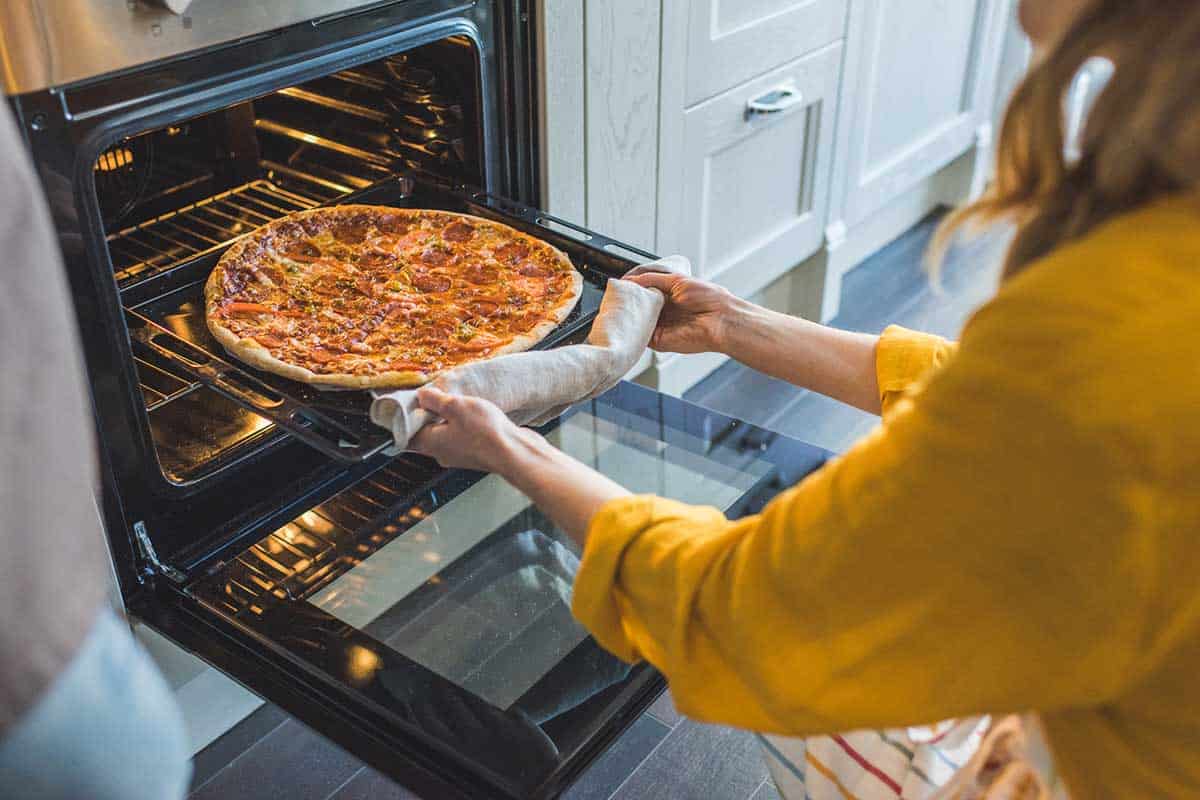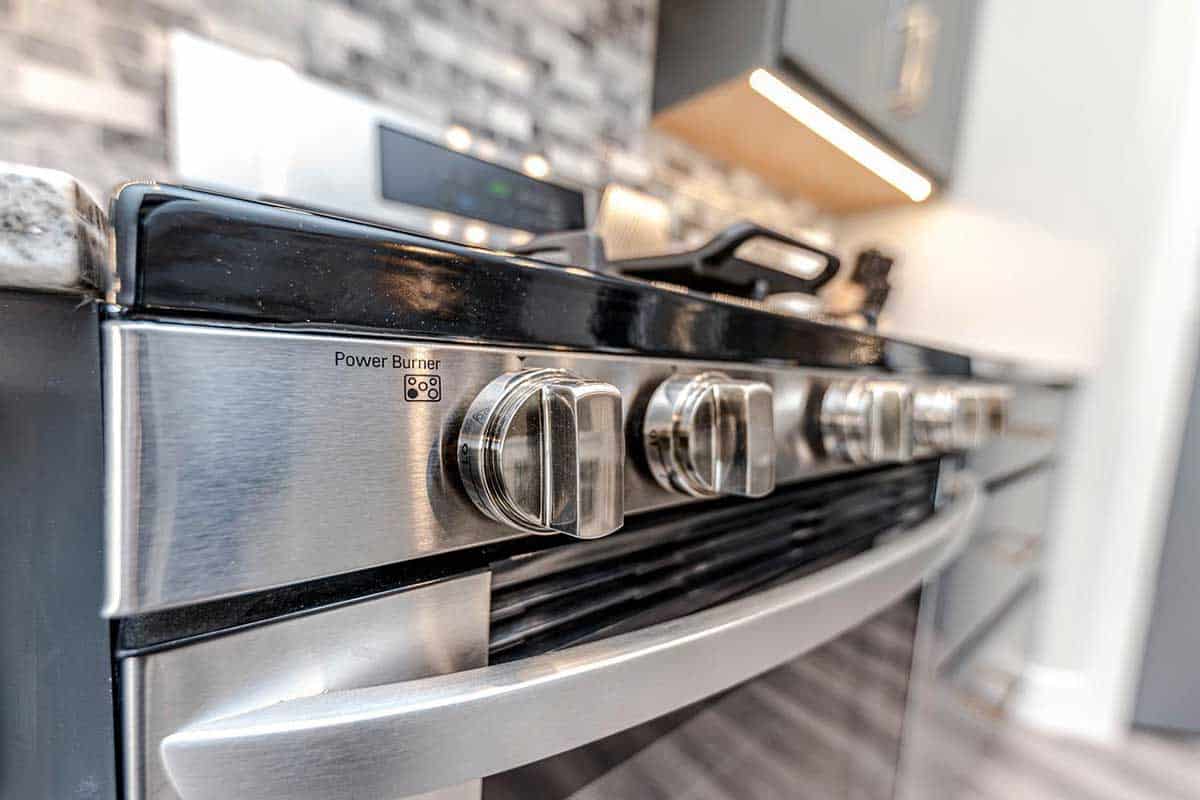This page may contain affiliate links. If you click and buy, we might get a small commission at no cost to you.
Ovens are one of the most commonly used everyday kitchen appliances, and they also contribute to deadly house fires every year. One way to prevent potential fires or other accidents is by making sure your oven is properly cooled down after each use.
If your oven is still hot, you run the risk of burning yourself or letting someone else get injured. You can also damage certain materials if they are sitting on still hot ovens. While it’s easy to know your oven should be cool, not everyone knows exactly how long it is supposed to take.
How Long Does It Take an Oven to Cool Down?
On average, it will take between 40 and 45 minutes for your oven to be completely cooled down after it has been used. The exact time will vary based on a number of factors, such as size, fuel type, and insulation.
Having the door open or closed can also affect how quickly an oven cools down. It can take time for your oven to get fully heated up, so it can take just as long, if not longer, to completely cool down.
5 Cooling Factors to Consider
There is more than one factor that comes into play when figuring out the exact cooling time of your oven. In addition to the age of your oven, the size, fuel type, and insulation will affect how long it takes to cool. Leaving the door open or closed can also dramatically change the cooling time.
1. Size
Smaller ovens will typically cook dishes faster because they are able to heat up faster. Similarly, a small oven will also cook down quicker than a large oven will.
This has to do with the simple fact that there is less space that needs to be heated or cooled. Even two ovens that come from the same brand will cool down at different times if one of them is smaller than the other.
2. Fuel Type
The type of fuel used to power your oven will also affect the amount of time it takes it to cool down. An oven is either gas or electric, and both of these fuel sources work in different ways to supply heat.
A gas oven only has one component that is heated when turned on. This means when the power is cut off, the entire oven begins to cool down. Electric ovens have multiple components, and once it has been cut off it will cool down in distinct phases. Because of this, it takes an electric oven longer to be completely cooled down than a gas oven.
3. Insulation
The kind of insulation and quality of the kind used will greatly affect the overall cool down time of your oven. This insulation is between the oven itself and the metal casing around it, and it works to hold in the heat.
Good quality insulation is great for keeping in heat, but will also make your oven take longer to completely cool off. Fiberglass is found in most older models, while the more up to date CMS materials are found in newer ovens.
If the insulation is old or damaged, heat will escape much faster. While this means your oven might cool down quickly, it can point to deeper problems.
4. Door
An open door on your oven will cause it to cool down a lot faster than a closed door. An open door allows all the heat to escape, and can drastically cut down how long it takes for the oven to be completely cooled off. Even just cracking the door slightly can help you speed up the cooling down process.
5. Fans
Some ovens come equipped with fans that work to help cool them off. These are also efficient in cutting down on the cool off time of your oven. These fans also work to spread heat throughout the oven when it’s on and work to cook food quicker.
Staying Safe

Even though having your oven door open can help it cool off, that doesn’t mean it is safe to do so. When the oven is hot, the door should remain closed anytime there are small children or animals around that could get hurt. An open, or even cracked door increases the likelihood of serious injury. Only crack the door to help with cooling if it is completely safe to do so.
Self-cleaning Cool Down
In self-cleaning mode, an oven will get extremely hot in order to clean the inside. When this happens the heat inside will likely be higher than it usually is, and it could take longer for the oven to cool off. After self-cleaning, your oven might not be cool for anywhere from 30 to 90 minutes.
Conclusion
While it takes an average of 45 minutes for an oven to cool down, the exact time can vary based on a number of factors. The size, fuel type, and insulation all impact the cooling process. Other aspects like built-in fans or leaving the door open can also cut down on the final cool down time for your own.
Luckily, most of us also have microwaves in our homes to use when we don’t want to deal with the preheating and cooling-down of ovens.



